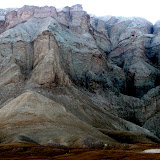Thursday, 31 December 2009
The grand finale: your New Year's resolutions
Wednesday, 30 December 2009
So, how do I feel?
Tuesday, 29 December 2009
What have I learnt?
Sunday, 27 December 2009
So what are the chances for peace?
Saturday, 26 December 2009
An oasis in the desert
Wednesday, 23 December 2009
Meeting Mossad
Tuesday, 22 December 2009
Punishing who?
Is the Shalit deal imminent?
Sunday, 20 December 2009
Trapped
Saturday, 19 December 2009
The gandhi way
Friday, 18 December 2009
The king of laughter
Thursday, 17 December 2009
An Arab peace initiative
Wednesday, 16 December 2009
The other voice
Today I went to Sderot to meet a guy who refuses to give in to the hatred. And believe me, this guy has a lot of cause for hatred. When the second intifada broke out in 2000, qassam rockets started coming over from Gaza into Sderot. At first, people in Sderot thought the rocket attacks would only last for a short time. No-one ever imagined that they would become an ongoing, long-lasting, and almost daily reality. Between 2005 and 2008, rocket attacks were particularly intensive. On good days, Sderot received two or three rockets, on bad days, up to sixty rockets.
The guy I met lives in Sderot with his wife and three children. His twins were three years old and his eldest daughter was six when the rocket attacks started. They are now 12 and 15 respectively. They do not know any other kind of reality. There are bunkers and shelters every few hundred metres. Many people receive ongoing trauma counselling.
When Justice Goldstone conducted a fact-finding mission earlier this year, he found Hamas militants guilty of war crimes and possible crimes against humanity, for their indiscriminate and incessant rocket attacks at civilians in southern Israel. And rightly so. He called on them to investigate and prosecute those responsible.
Three years ago, the guy from Sderot, met two people from Gaza at a peace dialogue in Jerusalem. It was the first time he had met someone from Gaza since the rocket attacks had started, and it was an eye-opening experience. The three men promised to stay in contact.
And for the past three years they have kept the channel of communication open. They spoke, emailed and blogged together daily during the war in Gaza, from December to January.
They set up an organisation called the Other Voice, which is dedicated to bringing together people from Sderot and Gaza, if not in person, then by phone, skype, email or even through loudspeakers across the wall that divides Gaza from Israel!
They are trying to fight the demonisation of the other. They are concerned with the consequences of the dehumanisation, of treating everyone from the other side as an enemy. They believe that ongoing and sustained contact with people is key to remembering that human beings live on the other side.
What affects me so strongly about the story of Sderot and Gaza is how the situation has led to the blurring between military and civilian targets, between combatants and civilians. On the Hamas side, the enemy is the State of Israel, and they deliberately target civilians. On the Israeli side, the enemy is the Gaza Strip, which was declared "hostile territory" in 2007, and whose people have been severely punished ever since Hamas was elected.
The result: terrorized and traumatized civilian populations on both sides. 3 civilian deaths in Sderot and 773 civilian deaths in Gaza, including 320 children, during the last period of hostilities.
What I love about the work of the Other Voice, is that its members resist the blur. It is simple, yet incredibly powerful. They are a minority, but just imagine what could happen if these voices could got louder.
15 days to go…
Tuesday, 15 December 2009
Monday, 14 December 2009
Who are the settlers?
 |
| Settlements |
Sunday, 13 December 2009
Extreme measures
Saturday, 12 December 2009
The festival of lights (or the modern Jew)
Friday, 11 December 2009
The music of life
And the dream was made possible because of support from many of you. So tonight, even YOU can put smiles on your faces. The music center will open in January, half the students will be girls and half boys. The head of the village has provided the space and political support for the project.
It is wonderful to feel part of a concrete project on the ground; particularly one that I so strongly believe in. This gives me hope. And I promise, before I finish this journey, I will provide you with plenty more ideas for how you can stay engaged.
20 days to go...
Thursday, 10 December 2009
The odd couple
Wednesday, 9 December 2009
Suddenly, an oasis of peace

Today I travelled to the village of Aqabah in the northern part of the West Bank, to meet the head of the village, Haj Sami. Haj Sami is no ordinary guy and his village is no ordinary village. He is dedicated to peace and has created an oasis around him.


